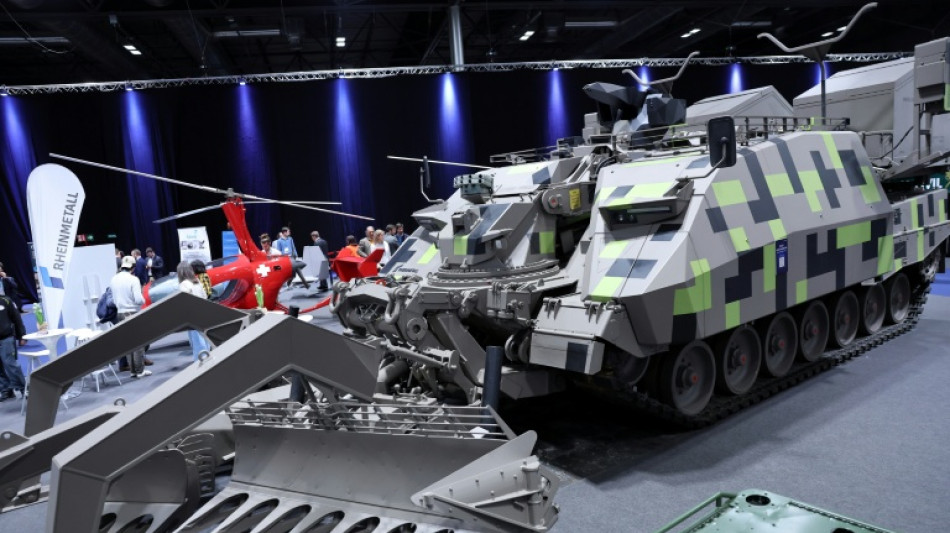
-
 Rudiger returns, Sane dropped for Germany World Cup qualifiers
Rudiger returns, Sane dropped for Germany World Cup qualifiers
-
S.Africa calls US welcome for white Afrikaners 'apartheid 2.0'
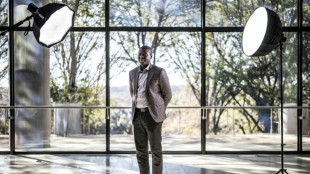
-
 'Resident Evil' makers marvel at 'miracle' longevity
'Resident Evil' makers marvel at 'miracle' longevity
-
Denmark apologises for Greenland forced contraception
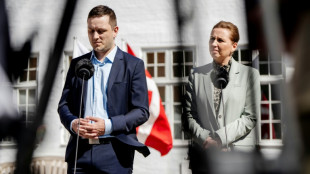
-
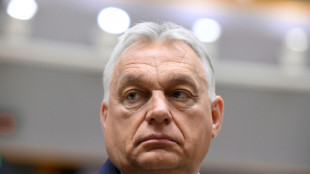 Hungary web users lap up footage of PM Orban's family estate
Hungary web users lap up footage of PM Orban's family estate
-
Alexander Isak selected by Sweden despite Newcastle standoff

-
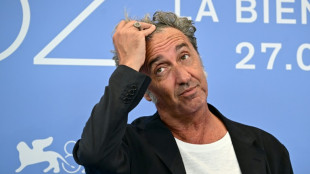 Italy's Sorrentino embraces doubt in euthanasia film at Venice
Italy's Sorrentino embraces doubt in euthanasia film at Venice
-
Trump urges criminal charges against George Soros, son
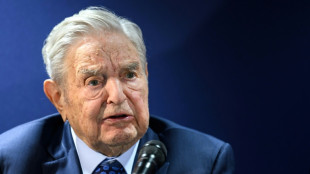
-
 Wildfires pile pressure on Spanish PM
Wildfires pile pressure on Spanish PM
-
Stock markets mixed ahead of Nvidia earnings
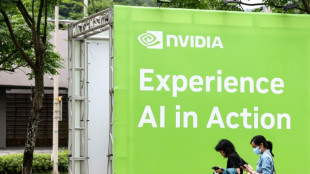
-
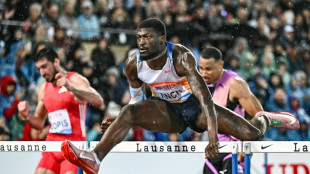 Football's loss as hurdles sensation Tinch eyes Tokyo worlds
Football's loss as hurdles sensation Tinch eyes Tokyo worlds
-
Pakistan blows up dam embankment as it braces for flood surge
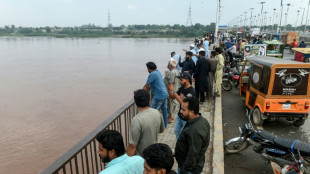
-
 Lego posts record sales, sees market share growing further: CEO
Lego posts record sales, sees market share growing further: CEO
-
France overlook Ekitike for World Cup qualifiers, Akliouche called up

-
 Rain no obstacle, Lyles insists ahead of Diamond League finals
Rain no obstacle, Lyles insists ahead of Diamond League finals
-
Record-breaking rain fuels deadly floods in India's Jammu region

-
 Showtime for Venice Film Festival where stars and Gaza protesters gather
Showtime for Venice Film Festival where stars and Gaza protesters gather
-
Almodovar urges Spain cut ties with Israel over Gaza
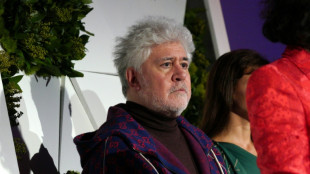
-
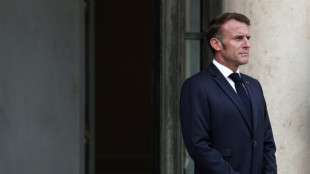 Macron gives 'full support' to embattled PM as crisis looms in France
Macron gives 'full support' to embattled PM as crisis looms in France
-
Stock markets diverge awaiting Nvidia earnings
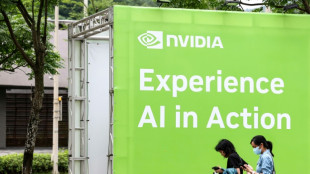
-
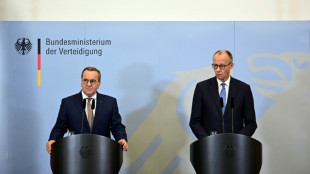 German cabinet agrees steps to boost army recruitment
German cabinet agrees steps to boost army recruitment
-
Denmark summons US diplomat over Greenland 'interference'
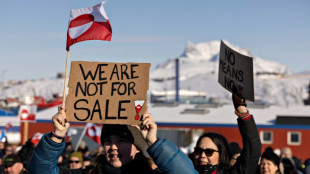
-
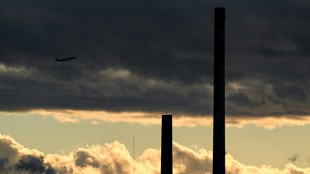 German factory outfitters warn of 'crisis' from US tariffs
German factory outfitters warn of 'crisis' from US tariffs
-
Israel ups pressure on Gaza City as Trump eyes post-war plan
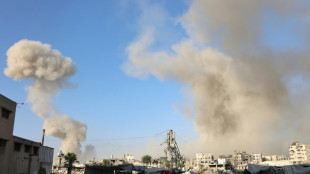
-
 Floods, landslides kill at least 30 in India's Jammu region
Floods, landslides kill at least 30 in India's Jammu region
-
Former player comes out as bisexual in Australian Rules first

-
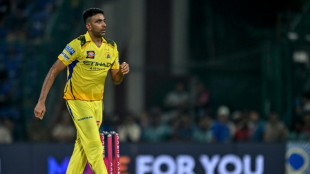 Indian spin great Ashwin calls time on IPL career
Indian spin great Ashwin calls time on IPL career
-
India faces world football ban for second time in three years
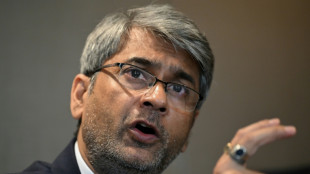
-
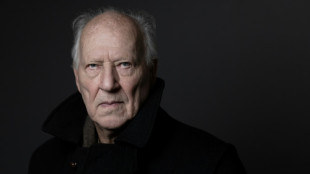 Globetrotter Herzog to get special Venice award
Globetrotter Herzog to get special Venice award
-
'Old things work': Argentines giving new life to e-waste

-
 Showtime for Venice Film Festival, with monsters, aliens, Clooney and Roberts
Showtime for Venice Film Festival, with monsters, aliens, Clooney and Roberts
-
Thai woman jailed for 43 years for lese-majeste freed

-
 What is swatting? Shooting hoaxes target campuses across US
What is swatting? Shooting hoaxes target campuses across US
-
Row over Bosnia's Jewish treasure raising funds for Gaza
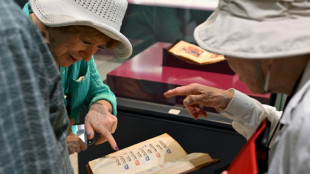
-
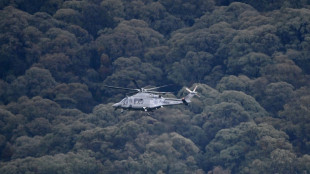 Police search Australian bush for gunman after two officers killed
Police search Australian bush for gunman after two officers killed
-
NZ rugby player who suffered multiple concussions dies aged 39

-
 Former Australian Rules player comes out as bisexual in first
Former Australian Rules player comes out as bisexual in first
-
French, German, Polish leaders to visit Moldova in show of force in face of Russia
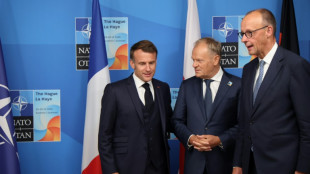
-
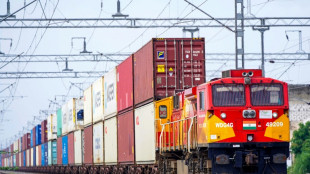 US tariffs on Indian goods double to 50% over Russian oil purchases
US tariffs on Indian goods double to 50% over Russian oil purchases
-
Feudal warlord statue beheaded in Japan

-
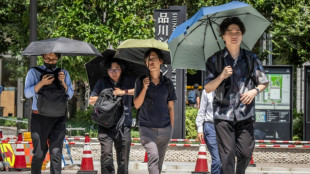 Tokyo logs record 10 days of 35C or more
Tokyo logs record 10 days of 35C or more
-
Sinner, Swiatek romp through at US Open as Gauff struggles
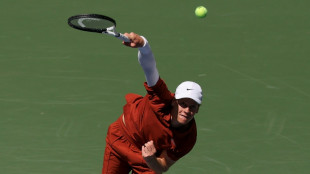
-
 Brazil to face South Korea, Japan in World Cup build-up
Brazil to face South Korea, Japan in World Cup build-up
-
Asian markets diverge with eyes on Nvidia earnings
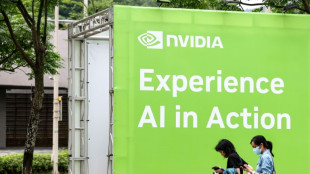
-
 Osaka out to recapture sparkle at US Open
Osaka out to recapture sparkle at US Open
-
China's rulers push party role before WWII anniversary
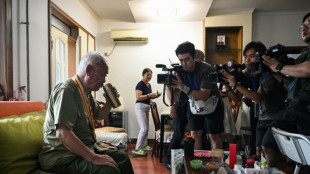
-
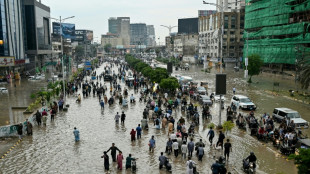 Pakistan's monsoon misery: nature's fury, man's mistake
Pakistan's monsoon misery: nature's fury, man's mistake
-
SpaceX answers critics with successful Starship test flight
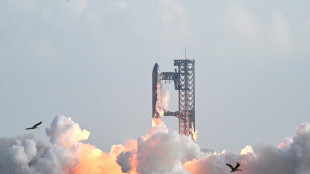
-
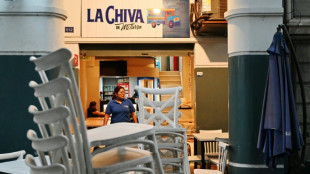 Nightlife falls silent as Ecuador's narco gangs take charge
Nightlife falls silent as Ecuador's narco gangs take charge
-
Unnamed skeletons? US museum at center of ethical debate
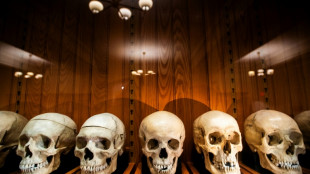
| RBGPF | 1.88% | 77 | $ | |
| RYCEF | 0.55% | 14.42 | $ | |
| CMSC | -0.39% | 23.77 | $ | |
| VOD | 1% | 11.98 | $ | |
| BP | 0.22% | 34.745 | $ | |
| GSK | 0.13% | 39.883 | $ | |
| RIO | -0.21% | 61.82 | $ | |
| RELX | 0.22% | 47.965 | $ | |
| NGG | 0.73% | 71.56 | $ | |
| SCS | -0.24% | 16.58 | $ | |
| BTI | -0.85% | 56.845 | $ | |
| CMSD | -0.08% | 23.85 | $ | |
| BCC | -0.76% | 88.18 | $ | |
| AZN | -0.42% | 79.715 | $ | |
| BCE | 0.34% | 24.985 | $ | |
| JRI | 0.29% | 13.399 | $ |

In changing times, young Germans gun for defence sector jobs
In a country with strong pacifist traditions due to its dark World War II history, German student Mika Scheid had never considered working in the arms industry -- until Russia invaded Ukraine.
That was a "personal turning point," said the 25-year-old studying at the prominent Karlsruhe Institute of Technology, who was spurred into becoming an armed forces reservist and now wants to work for a military equipment manufacturer.
"People are beginning to understand that the Bundeswehr (the German armed forces) is now clearly focused on defending the country" and NATO, said the engineering student during a job fair organised by the institute in western Germany.
He was among young Germans at the event expressing interest in the defence sector, a sharp break from the past amid growing hostility from Russia as well as concerns about US security commitments to Europe under President Donald Trump.
For the first time ever this year, German arms manufacturers -- which are some of the world's biggest but had in the past kept a relatively low profile -- were among exhibitors at the fair as they hunt for staff to meet surging demand.
There were some signs of unease, with Germany's biggest weapons maker Rheinmetall pulling out after a handful of students voiced anger at the presence of arms manufacturers.
Still, there is a sense the long-running stigma surrounding the sector has eased since the outbreak of the Ukraine war.
And the opportunities in the industry may be welcome at a time that Germany's economy is mired in a downturn.
The European defence sector employs about 600,000 people and is expected to grow strongly, including in Germany where new Chancellor Friedrich Merz plans to greatly ramp up military spending.
- Shifting attitudes -
"The political discourse we have had since 2022 has led Germans to change their way of seeing things," said Eva Brueckner, a consultant from the headhunting firm Heinrich and Coll, which helps defence companies find staff.
Since Russia's full-scale invasion of Ukraine over three years ago, candidates have expressed fewer ethical and moral concerns about defence sector jobs, she said.
Another student at the fair, Nico Haenelt, was enquiring about an internship at the stand of industrial giant Thyssenkrupp's submarine-making unit.
While the 19-year-old says his parents had quite a pacifist worldview, recent geopolitical upheavals have shaped his own outlook.
"If the world were more peaceful, I would probably also look in other areas," said Haenelt, who studies mechatronics, which mixes elements of engineering and computer science.
To attract talent, defence companies are offering perks ranging from paying for relocation costs to gym memberships, according to accounts given to AFP.
Diehl, whose products include ammunition and missiles, even offers scholarships to young people to fund their studies in the hope they will subsequently apply for jobs with the company.
- 'Conservative' sector -
With the German economy struggling, some hope the improving fortunes of the defence sector could provide a boost.
There are already signs that arms makers might throw a lifeline to some troubled companies.
Rheinmetall, whose profits have soared since the start of the Ukraine war, last year struck a deal to hire workers from Continental as the ailing auto supplier cuts thousands of jobs.
Still, beyond the traditional reluctance of young Germans to work in the defence sector due to the country's past, there are other challenges in recruiting for the industry.
"The sector is very conservative, and people who don't come from this background may have difficulty integrating," said the headhunter, Brueckner.
And not all the students at the job fair were rushing to find jobs in the arms industry.
Niklas, a computer science student who only gave his first name, said his priority was to find a job with "meaning", such as in the fields of health or sustainable development.
As for the arms industry? "Never", he insisted.
H.Nasr--SF-PST
